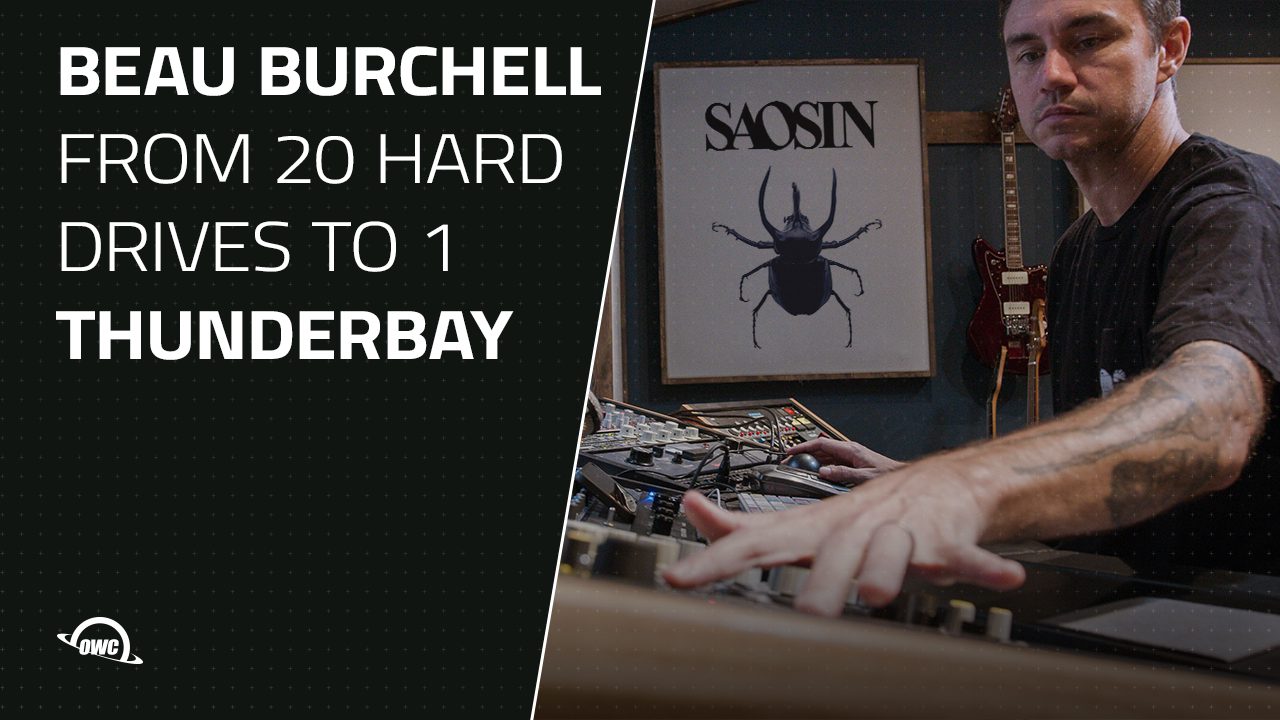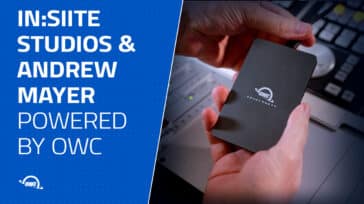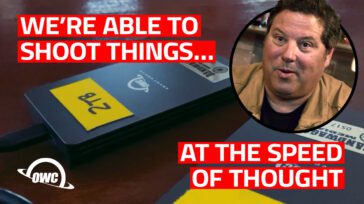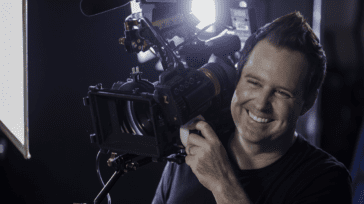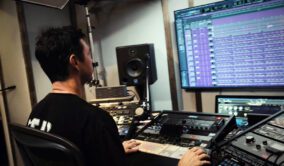
Described by Spin magazine as “pulse-pounding and hypnotic,” Newport, California-based rock band Saosin has helped define the post-hardcore scene since its founding in summer 2003. Saosin lead guitarist and founding member Beau Burchell has also pursued a parallel career as a record producer, audio engineer, and record label owner. Burchell’s production credits include more than 30 punk, emo, and post-hardcore albums for artists across the globe.
Though he might be reluctant to describe his band or record label as “institutions,” serving as producer or engineer on so many albums means safeguarding a great deal of institutional memory. Beau has spent two decades building up a massive archive of masters, alternate takes, and more.
Keeping track of all those tracks can be a logistical nightmare, even in the age of digital storage. The sheer amount of storage required to archive a complete recording session can run into the tens of gigabytes. After years of struggling to respond quickly to requests to retrieve one archived track or another, Beau realized it was time to get serious about file management.
We caught up with Beau recently and learned how OWC’s Thunder Bay RAID systems have proven instrumental in taming his massive and unruly audio archive. They’ve also helped ease his recent transition to streaming video with a popular Twitch channel.
A passion for production
Beau Burchell’s early experiments with multitrack production were primitive to say the least—crudely layering recordings on a dual-cassette boombox by playing along to tracks he’d already created. If the technology wasn’t exactly state-of-the-art, the technique still provided a way to hone his skills and demonstrate his talents as a guitarist and producer.
“The more I started recording my own stuff,” Beau recalls, “it started sounding better. From there, word of mouth spread, and I started recording real bands.”
From a studio perspective, one of the things that I wish I would’ve done sooner is to get into file management when making a record.
Beau Burchell
Covering his tracks
Twenty years down the line, Beau has much to show from his work in recording studios. Behind all that public product is a vastly larger collection of unused takes and tracks.
Beau’s passion for perfecting a sound, experimenting, and getting a take just right has often taken precedent over logging and organizing those experiments in an effective way. “From a studio perspective, one of the things that I wish I would’ve done sooner is to get into file management when making a record,” he says. “It’s so easy to get excited about the part that you’re recording that you forget to actually label the file.”
After 50 or 100 takes of a single guitar part, a producer is left with a morass of recorded material that might not be so easy to sort through after the fact. And typically, there’s little time to worry about carefully organizing the stored recordings all those takes—particularly for a producer or engineer juggling multiple projects and deadlines.
“After you finish a record, the label says, ‘Okay, great. The record’s done—hand it in,’” Beau explains. “Then you have another band that’s supposed to start the next day.”
When the label calls you ten years later and says, “Hey, we’re gonna do a re-release of this album,” you have to sift through twenty hard drives. That, for me, has been the tipping point where I’ve said, “I really need to get everything organized.”
Beau Burchell
Hard drives everywhere
When most musicians talk about gigs, of course, they’re referring to live shows. But for Beau Burchell as a producer and engineer, the word also refers to the multi-gigabyte storage requirements of accumulated tracks and takes. “One of my sessions might actually be ten gigs,” he says. “Multiply that by ten songs, and now I have a hundred gigs of unused stuff.” When a typical project ends with taking out a hard drive and setting it aside, “it’s totally not consolidated. It’s a big mess.”
After twenty years of producing albums, Beau estimates that he has accumulated roughly twenty hard drives. “I’ve tried to label drives by number, and then create an Excel sheet that says, ‘Drive number one has this.’ But then over the years, you run out of space and you say, ‘Drive number two might have some space on it. I’m gonna back up more stuff to that.’ And then you forget to update your Excel sheet.”
Sometimes, just knowing all that material is backed up—however haphazardly—is good enough. “But when the label calls you ten years later and says, ‘Hey, we’re gonna do a re-release of this album,’ you have to sift through twenty hard drives,” Beau says. “That, for me, has been the tipping point where I’ve said, ‘I really need to get everything organized.’”
Thunder Bay RAID to the rescue
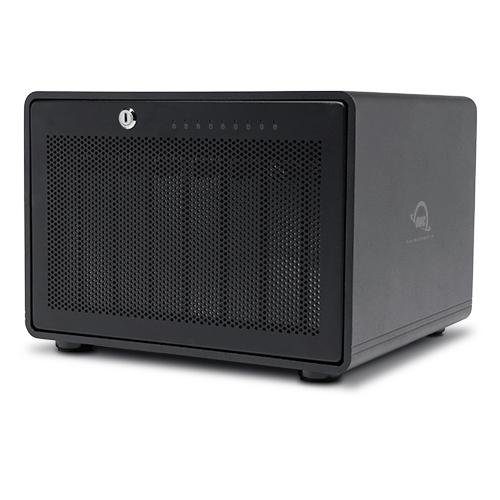
When Beau finally embraced file management and consolidated his stored recordings using an OWC Thunder Bay RAID system, his only regret was that he didn’t do it sooner. “The thing I’m most excited about with a Thunder Bay is having everything in one spot,” he says. “For so long, I just had to sift through” all those hard drives. “I felt like one of those guys on a beach with a metal detector, trying to find the song. I was flying blind.”
He also had to worry about actually retrieving the song if he was lucky enough to locate it. “I would have huge anxiety because it’s like, ‘I hope that this old drive that’s sitting in a plastic container still works when I fire it up.’”
He cites reliability and redundancy, as much as consolidation and organization, as the key benefits of a RAID solution. “In the past, if I plug in one of the drives and it doesn’t work, I’m out of luck. With RAID, I have this peace of mind knowing that if one of the four drives goes down, I’ll get an alert in the software that says, ‘Hey, this drive is down, replace it,’ and then it’ll rebuild everything.”
I felt like one of those guys on a beach with a metal detector, trying to find the song. I was flying blind.
Beau Burchell
Upgrading to RAID has also proved advantageous as Beau has moved into the video world with his Twitch channel. Capturing three separate video feeds for each show, Beau is producing enough footage that he estimates his storage needs have grown tenfold over his audio-only days.
When he was just storing video on individual external hard drives, “managing all that data really sucked,” Beau says, “by the sheer space that it takes. So the Thunder Bay is just great.”
View the complete OWC interview with Beau Burchell.
